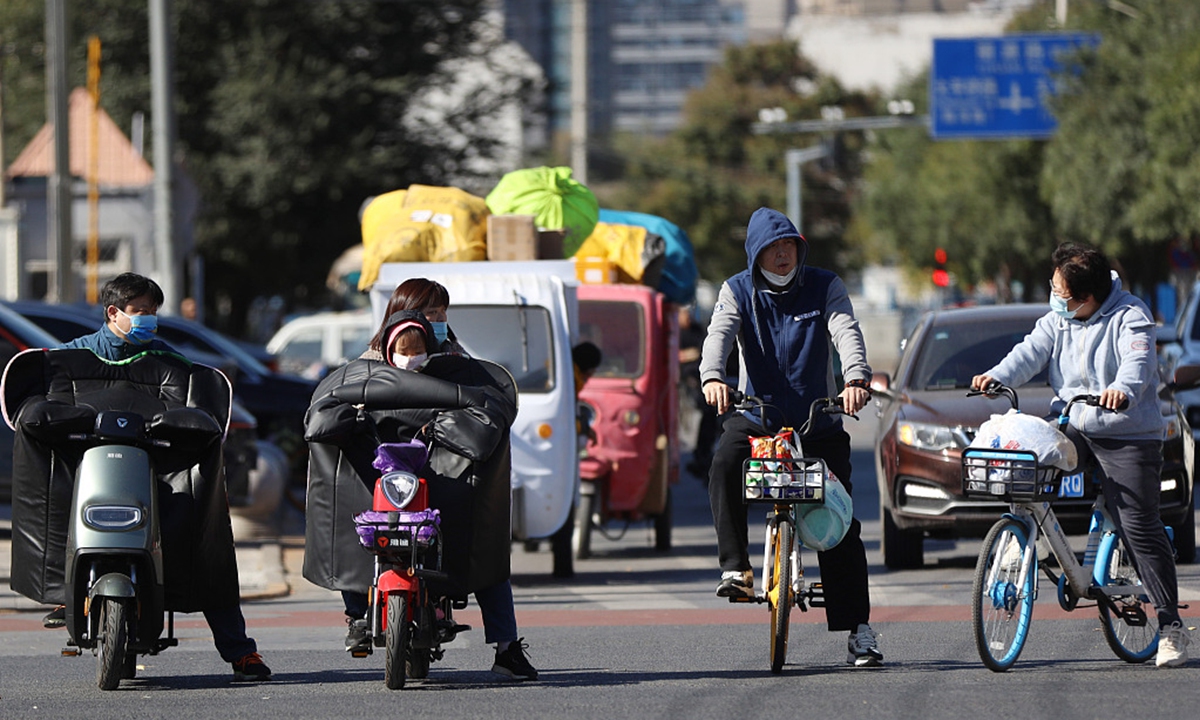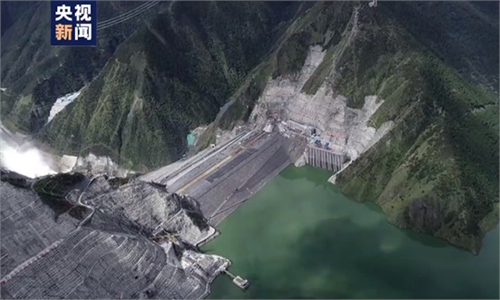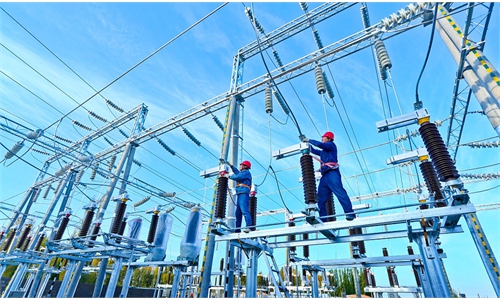Beijing freezes 20 days earlier than average amid cold wave that will likely drive up heating demand, strain grid

Beijing Photo:CFP
Beijing saw a freezing temperature on Sunday morning, 20 days earlier than the average of November 8, amid a cold wave that chilled eastern and central China in the past few days, perhaps foretelling a colder-than-average winter, public worried.
The cold wave dragged temperatures in many places in the provinces of Hebei, Shandong, Henan, Anhui and Jiangsu down by 10 C within 24 hours, which many residents jokingly said was like the "quick-freeze mode" of a fridge.
The freezing reading in Beijing was recorded by an observation station in the southern suburbs, which was the earliest since 1969. A Beijing resident surnamed Liu told the Global Times that normally, people wear trench coats in mid-October but puffer coats would not be too heavy for this year.
"If the cold continues, how can people endure the one month left before the municipal heating starts?" Liu asked.
The municipal heating systems started ahead of schedule in some cities of Northeast China. Mohe, the northeastern tip of China's territory, started its eight-month heating season on September 17, two days earlier than the previous year, which was already considered a cold winter for the region.
Beijing already saw its first snow during the National Day holidays on a mountain in the north. Luoyang in Central China's Henan Province, which usually welcomes its first snow in late November or early December, saw flakes covering nearby Mount Baiyun on Saturday morning.
The national weather forecaster issued a blue alert ahead of the cold wave.
After the cold wave, temperatures will pick up a little bit but will still be 4-6 C colder than average, according to the national meteorological observatory. Temperatures along the middle- and lower-reaches of the Yangtze River will be 7-8 C colder.
A Beijing-based expert told the Global Times on Sunday that the cold wave was caused by the westerly, which brings cold and dry air from Siberia to China. The pattern repeats every year but came earlier this year amid atmospheric circulation anomalies.
But the expert denied that there's any connection between a cold wave and a cold winter, citing the winter of 2020/21 as an example.
Despite many strong cold waves, record-breaking cold in multiple cities and lower-than-average temperatures in northeastern and northwestern China, the majority of the nation experienced higher temperatures last winter compared with long-term averages.
The trend coincides with the climate change of general warming and rising extreme weather, some analysts said.
But the Beijing-based expert noted that an early cold wave will drive up heating and power demand, which could be a challenge for the country, which is already short of power.
The National Development and Reform Commission said on September 29 that it will ensure stable energy supply for the upcoming winter and spring to guarantee residential use and heating.
Preparation for winter heating is one reason for electricity cuts in some regions, as both depend heavily on coal, whose prices have skyrocketed.
Meanwhile, heating via air conditioners and electric heaters may increase amid the cold wave, and further strain the grid, experts said.


